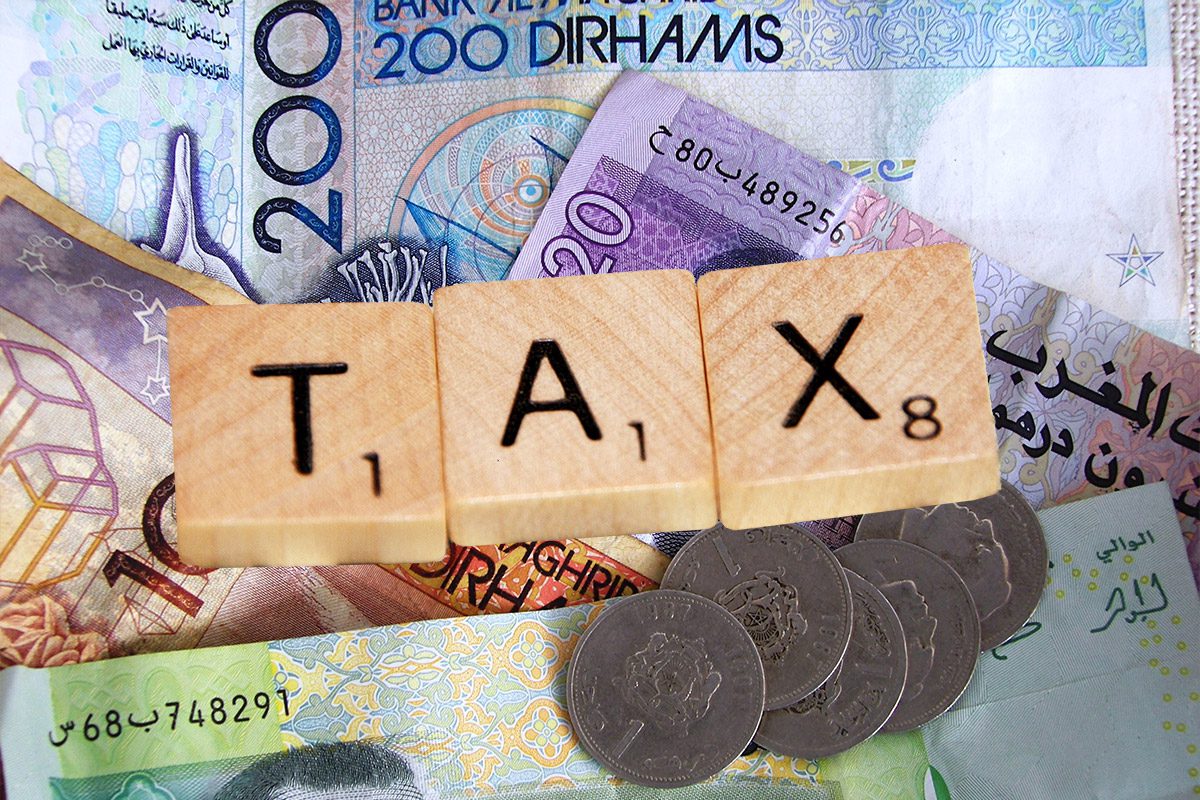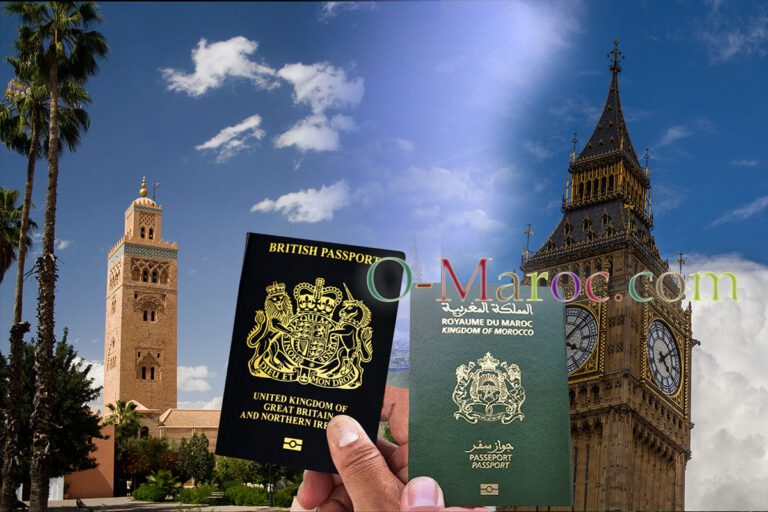When you move to another country, you become a resident there. The impact of this change of residence, and the conditions attached to it, will affect many areas, including the country you are leaving. And nationality (in our case, being foreign, Moroccan or bi-national) plays a major role. So before you leave, you need to assess your situation:
- taxation
- private health care or social security cover
- pensions
- and even applicable legislation
Nationality
Nationality is a simple concept on the face of it; it starts to get a little complicated when you have two nationalities (Anglo-Moroccan, American-Moroccan), but when you live in a country of which you have the nationality, things are clear: other nationalities are not taken into account. A Anglo-Moroccan will always be Moroccan in Morocco and British in the UK.
Where things get a little more complicated is that you can have Moroccan nationality “without knowing it”, or at least without it being official. Remember that Moroccan nationality is automatically passed on by the father, or by the mother if you apply for it. A child of a Moroccan couple, born in the UK, with British nationality and only a British passport, is in reality Anglo-Moroccan, and just needs to have his papers regularised.
Nationality also plays a role, even when you are a foreigner, via bilateral agreements that may have been signed between your country of origin and Morocco (judicial agreement, double taxation agreement, etc)

Residence
The concept is a little less binary than that of nationality. You are a resident of a country where you “live”. If you live 320 days a year in Morocco, work there and send your children to school there, you are a resident. The ‘grey’ areas begin to appear when :
- you reside mainly in Morocco, but also in your country of origin (a limit of six months per year is generally accepted, but what happens to people who do not spend more than five months in any one country?)
- you have companies that pay you directly in different countries
- part of your family has remained (temporarily) in your country of origin
While some countries, such as Belgium, have decided in favour of a simple criterion (six months’ residence), others use the concept of “economic connection“: you have to determine which country is the most important, the one that enables you to finance your life. In short, you don’t ‘choose’ to be a resident or non-resident, you apply legal criteria (but you can organise your life, to a certain extent, to be a resident of a country).
Residence in Morocco is granted on the basis of a file in which the foreign applicant must, with a few exceptions (spouse of a Moroccan), provide proof of means of subsistence. Moroccans simply need to register with the local council with their lease.
Impact of residence on taxation

A change of residence means a change in tax. You will need to look at :
- the tax payable in the old and new countries, in the year of transition
- the tax payable on income paid in the country where you are no longer resident (e.g. rent, etc.)
bearing in mind that there is a risk of double taxation (taxation in the country of residence and in the country of origin). This risk is governed by tax treaties between countries.
Morocco has now signed a tax treaty aimed at avoiding double taxation with, among others:
- Canada
- United States
- United Kingdom
- Ireland
- Switzerland
- Belgium
For these treaties to be applicable, the person must of course have a “clean” tax situation: they must have declared their change of residence in the country they are leaving and registered in Morocco.
Declaring a change of tax residence has two consequences:
- in general, the balance of outstanding taxes (for example, to be paid at the end of the year) becomes immediately due ;
- a certain number of benefits linked to tax residence disappear, as do many social benefits.
Tax residence and social security cover
That applies only if you’re lucky enough to live in a country with a state health care (ie. nearly anywhere in the world, except USA, and a few other ultra-liberal countries), in addition to social security cover, benefits include supplementary insurance, various benefits (housing assistance, family allowances, etc.) which are linked to a criterion of effective residence (and not just tax residence).

In fact, with the exception of pensions and compensation for loss of earnings, most social security benefits are linked to two criteria which, in practice, amount to the same thing: either being employed in a country or being resident in this same country.
In other words, even if you don’t change your tax residence but spend a lot of time in Morocco, if you spend more than a certain number of days abroad, you may lose your social security benefits. When everything’s going well… nobody notices a thing. If you have a serious accident in Morocco, you risk disaster.
When you move to Morocco, you become a Moroccan tax resident and you stop working in your country of origin. Social security is clear on this point: with very rare exceptions (short-term secondment or retirement), you lose your entitlement to social security benefits of your country of origin, the only way to maintain them being:
- benefit from one of the few international conventions signed by Morocco;
- subscribe to a private insurance and pension plan in your country of origin.
The other option is to take out supplementary Moroccan insurance, either through the company that employs you, or directly.
Cost comparison between foreign and local insurers
If you subscribe to a foreign insurance / pension plan, it is difficult to compare costs “for equivalent services”, as their reimbursement rates are high and based on foreign rates. In addition, returning to your country of origin for treatment is usually systematically covered. Moroccan insurance, on the other hand, is based on the CNSS rate, and only covers treatment abroad when it is impossible to obtain treatment in Morocco.
However, if we take the example of such a French insurance, CFE, top-of-the-range supplementary insurance that reimburses actual costs is between 30% and 60% of the cost of the CFE. Bear in mind that the Moroccan private health system is perfectly adequate if you live in a large city.
Pension
Similarly, if you work in Morocco, unless you contribute to a private pension plan, you will only contribute to Moroccan schemes. Although there are, in some countries, agreements that allow the years of service required to obtain a full pension to be included in the calculation, the value of the contributions is much lower, and will reduce the final value of your pension.
So, if you are expatriating to Morocco, negotiate this point too: will the company maintain your pension contribution in your country or origin, subscribe to a private plan, buy back pension points if your experience ends prematurely ?
Applicable legislation
While it is logical to say that Moroccan law applies to all Moroccan residents, there are two areas where whether or not you are a Moroccan national has a big impact.
Foreign exchange control
The dirham is still not a convertible currency. As a Moroccan, it is forbidden to have an account in convertible dirhams, and business operations are closely monitored. Once they have settled in Morocco, and barring very rare exceptions, MREs returning to Morocco will no longer be able to transfer money abroad beyond the tourist allowance (currently forty thousand dirhams a year).
Family law, or moudawana
Moroccan family law is directly linked to religion. There is no civil marriage in Morocco; the rules governing marriage contracts are religious, with a difference for Muslims and Jews.
This point is important in two cases: intermarriage or marriage between MREs. In both cases, a certain number of clauses in the French marriage contract, or its effects, may be inapplicable (in particular, community of property does not exist). Depending on your personal situation and assets, it may be worthwhile signing a supplementary contract, before an addoul, bringing your Moroccan marriage contract into line with what you decided in France.
The special case of two-stage expatriation: stay covered
Sometimes it’s necessary to come alone at first, to prepare the ground for your family: the children want to finish a school year, you want to make sure your project is viable before taking the plunge.
But this very sensible approach is even more complex. In particular, it’s essential to make sure that the family back home has good social security cover. (If the wife does not work, it is essential to take out private insurance, and for the wife to apply for a universal protection, if available).

The cost of this additional insurance, even if temporary, is not negligible.
A two-stage expatriation is also likely to have an impact on customs duties during the move: these are only exempt for the six months following the date on which residency is obtained.
We have worked on several cases of this type. We can help you (although for part in your country of origin you’ll need to check with your local caisse), and we can’t stress this enough: all these aspects need to be taken into account well in advance of your departure. In tax matters, as in social security, you can’t ‘catch up’ after the event.
(Personal PS: it’s when I write this kind of article that I realise just how much Europe can offer its citizens, despite all its faults…. The more I live outside Europe, the more I love it! )
 A typo or syntax error? You can select the text and hit Ctrl+Enter to send us a message. Thank you! If this post interested you, maybe you can also leave a comment. We'd love to exchange with you !
A typo or syntax error? You can select the text and hit Ctrl+Enter to send us a message. Thank you! If this post interested you, maybe you can also leave a comment. We'd love to exchange with you !




